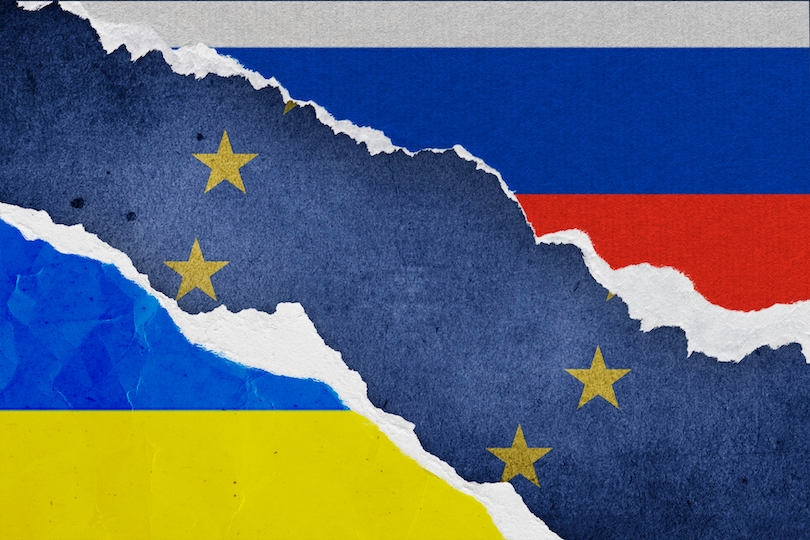Opinion – The status of the European Union in the Russian-Ukrainian crisis
EU foreign policy chief Josep Borrell visited Ukraine in January 2022 amid continued rising tensions along the Russian-Ukrainian border, sending a strong message of support to Kyiv. This came at a time when a series of security talks between Russia and the United States, NATO and the OSCE were due to take place from January 10, 2022. The EU expressed its genuine concerns about his exclusion from the talks on European security. architecture and its representation as a “neutral spectator”. Borrell insisted that “any discussion on European security must take place in coordination with the EU and with its participation”. After all, everything that happens in its neighborhood affects the security of the EU and its Member States.
Since the crisis erupted on the Russian-Ukrainian border in 2014, the EU has been instrumental in helping Ukraine sharply reduce its economic dependence on its hostile neighbor Russia by providing more of 17 billion euros. The 2014 EU-Ukraine Association Agreement made the EU Ukraine‘s largest trading partner surpassing Russia. But what has cast a shadow over the budding EU-Ukraine bonhomie is the EU-Russia economic equation.
The EU is Russia‘The country’s largest trading partner with 37.3% of the country’s total merchandise trade in 2020. Thus, to its advantage, the bloc has tried to use the instrument of economic sanctions to deter Russia from any further misadventures in Ukraine and its vicinity. This policy of “hitting the bear where it hurts the most” has not deterred Russia from easing tensions on its border with Ukraine. Thus, the EU pledged to impose new, tougher sanctions in response by warning Russia: “aggression has a price”. Critics, including Ukraine, have been quick to castigate the EU’s ‘Russia appeasement policies’ for failing to define this ‘price tag’.
The question remains: what prevents a stronger economic response from the bloc to avoid Moscow’s belligerence in its neighborhood? The crisis in the EU’s eastern neighborhood is exacerbated by a deepening domestic energy crisis. Both point to a common cause: Russia, the bloc’s main supplier of crude oil, natural gas and solid fossil fuels. The EU’s energy dependence on Russia has skyrocketed lately and the Kremlin is trying to exploit Brussels’ energy insecurity to its advantage. This geo-economy of energy trade, largely in favor of Russia, makes Brussels’ position in the face of the Kremlin fragile.
Moreover, Nord Stream 2, an offshore Baltic Sea natural gas pipeline linking Russia to Germany, has further aggravated the issue of the EU’s dependence on Russia for energy security. If German regulators approve the project, the pipeline would transport 55 billion cubic meters of natural gas from Russia to Europe annually. With this development, the possibilities of abandoning the existing Russian energy supply routes to the EU energy market, namely the Ukrainian transit line and the Belarusian-Polish gas pipeline, cannot be denied. This comes at a huge economic cost for transit countries like Ukraine and Poland who fear losing revenue while jeopardizing their national security.
Nord Stream 2, to see the light of day, remains in the economic interest of Russia. Whether Germany, to the EU’s advantage, should play the “Nord Stream 2 card” and list it openly as the price of further Russian aggression has divided member states.
The EU has failed to project its influence into its neighboring conflict zone. In December 2014, the bloc launched a civilian support mission, EUAM Ukraine, aimed at “reforming law enforcement and rule of law institutions”. On the security side, Brussels intends to support Ukraine‘s the armed forces with 31 billion euros to come via the European Peace Facility instrument.
But what is still missing is an EU-led military support mission to Ukraine, even after nearly eight years of Russian annexation of Crimea and escalating tensions on the Russian-Ukrainian border in the vicinity of the block. As the crisis is primarily military, Ukraine has requested NATO assistance in the event of an attempted invasion from its eastern border, rarely relying on military assistance from the EU.
The bloc’s centrality to European security has been called into question by its absence of any meaningful dialogue on the European security architecture around the Russia-Ukraine crisis. The EU response is still taking shape as Russia continues to muster troops on its western border. So, for Brussels, the question should not be ‘what if Russia invades Ukraine?’, but ‘how to dissuade Russia from further misadventures in Ukraine?’. Unless it has a strong deterrent against Moscow, Brussels would continue to be seen as an uninvolved bystander.
Further Reading on Electronic International Relations


Comments are closed.